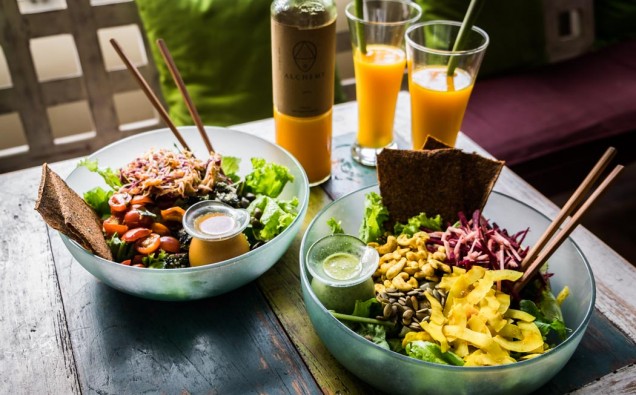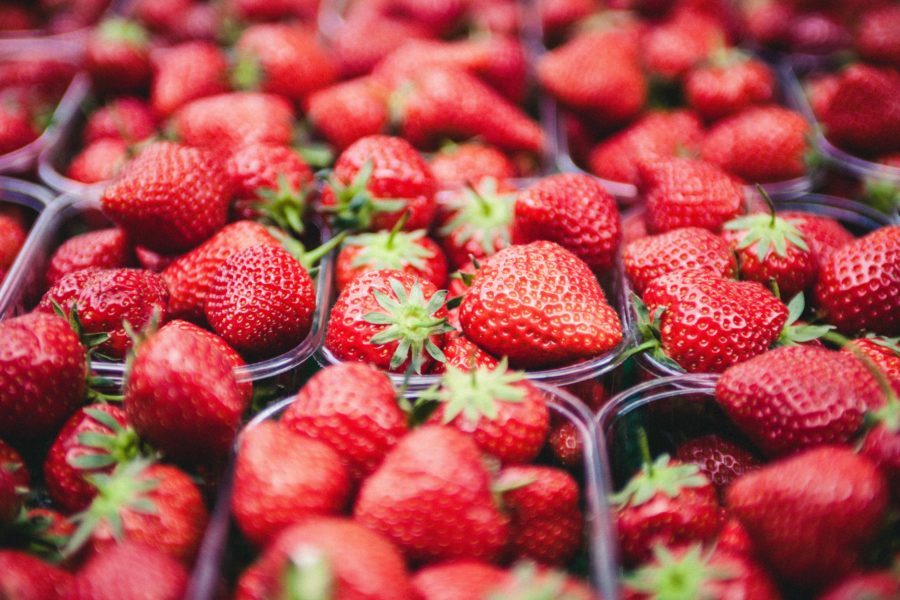
Been thinking of going organic? An organic lifestyle involves doing away with synthetic materials and chemicals. When it comes to diet, it often refers to cutting out foods containing artificial ingredients such as pesticides, preservatives, colourants and additives. Reducing these types of foods can be beneficial to the environment and it can also be healthier. As many people realize, going organic isn’t easy and it can be more expensive if you’re not careful. Here are just a few tips for helping you to identify organic foods and save costs.
Understand organic labelling
Coming to grips with the way organic food is labelled is the first important step. ‘Organic’ doesn’t always mean wholly organic, which could be something to watch out for if you want to follow a strict organic diet.
By law, foods labelled as ‘organic’ must contain 95 percent organic ingredients, which mean possibly 5 percent non-organic ingredients. Products that state ‘made from organic ingredients’ meanwhile only need to contain 70 percent organic ingredients, which means 30 percent of ingredients could contain chemicals.
Unless the label states ‘100 percent organic,’ there are likely some non-organic ingredients in there. Some people may not be too concerned by this, however those that are dedicated to abstaining from non-organic foods completely may want to be wary of this labelling.
Other labels that are often mistaken for organic include ‘natural’ and ‘all natural ingredients.’ There are no packaging laws that state this has to be true and while most of these foods are likely to be predominantly organic, there’s still a high chance there will be some preservatives or additives hidden in there.
Eat less processed foods
By and large, processed foods tend to contain more artificial ingredients such as preservatives. You can still find jarred sauces, cakes and ready meals that are wholly organic (Higher Hacknell’s ready meal selection is a good example of this), but they’re often harder to find and more expensive.
Learning to cook from raw ingredients can be more time-consuming, however it could make it easier and cheaper to eat organic.
Be wary of ‘the dirty dozen’
The dirty dozen refers to twelve fruits and vegetables that are most susceptible to pesticide residue. These include:
- Apples
- Peaches
- Celery
- Nectarines
- Strawberries
- Cherries
- Pears
- Sweet bell peppers
- Imported grapes
- Lettuce
- Potatoes
- Spinach
Although you can find organic versions of these foods, they tend to be a lot more expensive – this is because farming these fruits and vegetables without pesticides takes a lot more care and attention.
Reducing your intake of these fruits and vegetables could save you money on having to find organic alternatives. It’s worth noting that there are a few foods out there that rarely contain pesticide residue such as broccoli, bananas, cabbage, onions, sweetcorn, asparagus, avocado and mango. Opting for organic versions of these products may not be worth the added cost considering that most regular versions of these foods are likely to be free of chemical residue anyway.

Know when foods are in season
Taking note of when certain foods come into season can be useful. Foods that are produced out of season are likely to be done so with chemicals or imported from another country (which often means spraying them with preservatives so that they’ll last the journey).
Strawberries for example tend to grow best between April and June. You’re more likely to find organic strawberries during this period as a result as there’s less need for preservatives and genetic modification.
Some areas may have extended seasons due to a better climate for growing certain foods. In the US, Florida tends to have longer strawberry picking seasons than somewhere generally colder like Minnesota (however you could find that this state has a longer season for fruits like apples).
Shop at local farmer’s markets
Local farmer’s markets are some of the best places to shop for organic foods. Buying directly from farmers themselves is often cheaper because they’re not having to cover the added costs of transport and retail. The fact that you’re buying locally also means that there’s less need for preservatives and so you’re likely to find a greater range of organic foods. Shopping at farmer’s markets also allows you to ask the farmers directly about their product and the processing that goes into – something that you can’t always gather from reading a shop label.
To find farmers markets in your area, you can use the Farmer’s Market Directory. This site also offers information such as opening times, as well as payment options.
Consider eating less meat
Organic meat is notoriously expensive. Eating more vegetarian meals could save you money when going organic. If you love your meat and don’t think you can do this, reducing your meat portions could be another way of saving money – this could allow you to stretch a single piece of meat over a week.
White meats tend to be cheaper than red meats, so you may want to stick largely to this type of meat. Organic fish is also an affordable option and could give you that fix of protein that you’re after. Also consider some of the previously mentioned rules above such as buying in season and buying from local farmer’s markets – you’re much more likely to find affordable organic lamb by shopping locally in late Spring.
Join an organic food operative
Many organic food operatives have loyalty schemes, which can make shopping for organic foods cheaper. Planet Organic is one such organization that has its own loyalty app that can be used in stores – with every purchase you gain points, which can be used at a later stage to get free food.
Other organic food suppliers may have membership schemes that offer discounts in exchange for a membership fee. Such discounts are worthwhile if you’re going to shop at these places regularly.
Take the hassle out of shopping with meal kits
A lot of people going organic don’t just struggle with the cost – many people struggle with the added time and effort of having to shop for organic ingredients. If you lead a busy life, you may find it difficult getting to your local farmer’s market or driving that extra distance to find your nearest organic store.
Organic meal kits are a way of adding convenience to an organic diet. These are kits containing all the necessary ingredients to various organic meals which you can choose online and get delivered to your home. Some meal kit providers are entirely organic – this Sun Basket review offers information on once such company. Meal kits may be an added expense for some people, although you can get some good deals by choosing the right kits.
Look for organic restaurants and cafes in your area
Eating out can be more of a challenge when taking up an organic diet, however it is getting easier due to the growing number of exclusively organic chains and independent restaurants popping up. InBloom is a popular app that can help you to find these establishments in your area listing everything from organic coffee bars to organic hotels. You can expect to pay a lot when dining out somewhere that is exclusively organic – shopping for vouchers online beforehand could save you some money.
Many mainstream restaurants now have organic options listed their menus. There’s not always a guarantee that these foods and drinks are wholly organic – this is something you may want to do your own private research into before visiting.
Grow your own produce
One of the most effective ways to follow a strict organic diet is to grow your own food. This allows you to control the growing process and ensure that no pesticides, artificial fertilizers or chemicals are used. It can also save you money – seeds cost very little and you can make your own compost.
Few people are likely to have the time to go entirely self-sufficient, however growing a few vegetables or herbs isn’t likely to be arduous. You don’t even need a garden to grow your own fruit and vegetables – many edible plants such as tomatoes, chilli peppers, cucumbers, green beans and basil can be grown in potted plants on a windowsill.
When buying seeds and edible plants, bear in mind that some of them may not come from organic sources. It’s worth always going through an organic gardening supplier so that you know your home-grown plants are completely chemical-free. Meanwhile, there are plenty of DIY organic methods that you can explore online when it comes to deterring pests and helping soil richness.

